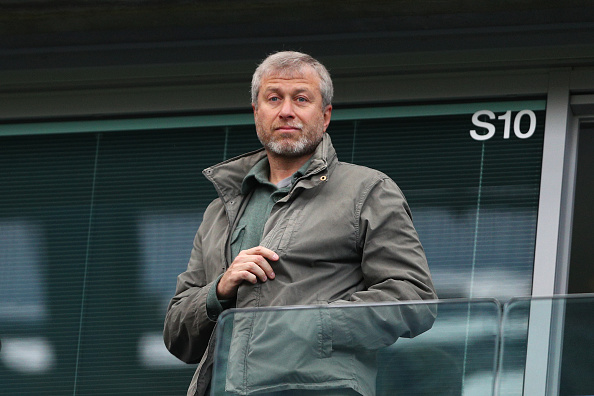Chelsea in race to find new backer or risk administration as Abramovich sanctions bite

Chelsea face a race to find a new benefactor after Roman Abramovich was sanctioned by the UK government – or run the risk of administration.
The sanctions prevent any new money going into the Premier League club, effectively forcing Abramovich to offload Chelsea or watch it run out of money.
The club have consistently spent more than they earn – last season they made a loss of £156m – but have been propped up by loans from Abramovich totalling £1.5bn since 2003.
He is no longer able to help the European champions cover their expenses, which include a weekly wage bill of £6.4m, while the sanctions have cut off other sources of income.
Chelsea are banned from selling any further tickets or merchandise, generating cash through player sales or striking any new commercial deals.
Main sponsor Three suspended its £40m-a-year contract with the club, although it remained on their shirts for this evening’s fixture at Norwich City. Other commercial partners have said they are considering their positions.
That means Chelsea’s cash flow is likely to come under increasing pressure as long as the club remains subject to sanctions.
The easiest way out would be a sale, which the government has said it is open to allowing as long as Abramovich does not receive any of the proceeds.
“Without knowing the cash resources held by the club it is difficult to predict,” said football finance expert Kieran Maguire of the University of Liverpool.
“If a sale of the club, overseen/controlled by the government and proceeds frozen from Roman Abramovich takes place relatively quickly then the challenge of meeting operational costs can be addressed and any fears of administration would diminish.
“It is not in anyone’s interests – owner, Premier League, employees or government – to have the present owner at the club any longer than the bare minimum.”

Experts believe Chelsea may have enough cash in the bank and payments due – from Premier League central distributions and scheduled transfer fee instalments – to see out the season.
But their inability to do any new business will eventually bite and means the loss of key players such as Antonio Rudiger, whose contract expires this summer, is likely.
“I’d expect Chelsea to have the resources to get to the end of May. What happens after that is then more difficult,” said Tom Bason, assistant professor of sport management at Coventry University.
“If they can’t access next season’s TV rights it’s certainly going to be very difficult for them to earn the money to pay the day to day bills.
“Over the last years Chelsea have been so reliant on loans from Abramovich. If that goes, that is certainly problematic.
“They need to come out of the sanctions. The problem that Chelsea I think are going to find is that to continue to operate in the way they do they’re going to need someone who’s prepared to continue funding a loss-making organisation.”
Abramovich hired US bank The Raine Group to find a buyer for Chelsea earlier this month. Swiss billionaire Hansjorg Wyss, LA Dodgers co-owner Todd Boehly and British property tycoon Nick Candy have emerged as suitors.
The Premier League deducted nine points from Portsmouth after they went into administration in 2010. A similar penalty could deny Chelsea a place in the lucrative Champions League next season, adding another financial blow.
